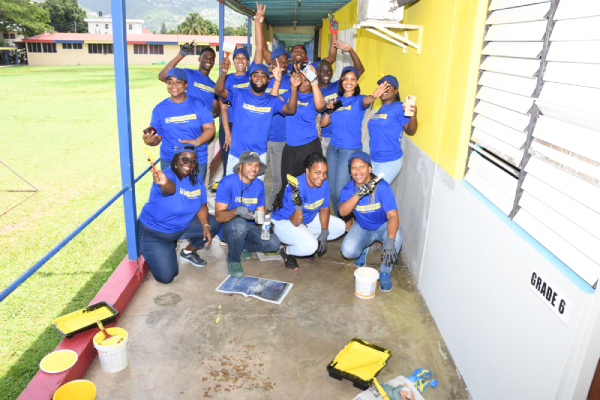
Medical Practitioner Warns Against Social Media Information on COVID-19 in Light of Wide Impact
Medical practitioner, Dr Karl Exell addressing a JN Circle Meeting, recently.
Medical practitioner, Dr Karl Exell, is cautioning Jamaicans to be careful where they get medical information on COVID-19, as a lot of misinformation about the disease is being disseminated.
“Be wary and careful of some of these messages being disseminated. Check with a medical professional [in] the Ministry of Health or [with] reasonably good sources for information, not Wikipedia,” he said making references to social media posts on the virus.
Dr Exell made the remark while addressing a JN Circle Meeting in Linstead recently where he was invited to educate members about how to protect themselves and family members from contracting the disease.
He said this was not the time to panic, but instead persons should avail themselves of credible sources of information, wash their hands and avoid crowded areas.
He noted that the virus will affect every aspect of society, including business. So far, there has been a fallout in the tourism sector with some hotels shuttering doors and laying off workers. Some businesses have scaled back on their operations as they abide by the government guidelines to have only essential services turning up for work. Meanwhile, none essential services have been instructed to work from home, if possible.
Dr Exell however maintained that whatever the situation, generally good health was important, and encouraged the meeting to make use of local fruits in efforts to boost their immune system.
“In Jamaica, there is no shortage of Vitamin C – cherries, bananas, tomatoes, are all natural sources,” he said. “Vitamin C is a very important element in helping us to fight bacteria and virus, but it is a process. Invest in taking your Vitamin C on a regular basis.”
Meanwhile, Dr Exell pointed out that one of the major challenges that Jamaica could face if the virus continues to spread unabated, is a shortage of resources for intensive care.
“Of that 20 per cent of persons who will get ill, they will need ICU (Intensive Care Unit) care and even in first world countries, what they are finding is that they have exhausted ICU spaces,” he said.
More than 100 countries have confirmed cases of COVID-19 with more than 180,000 testing. So far, there have been more than 7,000 deaths worldwide. In Jamaica, there has been one death and 15 confirmed cases so far.
Check out more stories like this

Pay Attention! Expert Calls Jamaicans to Heed Mental Wellness of Men and Boys
Mental health expert Dr Marlon Simpson is calling for urgent...

When Push Comes to Shove! Protect Yourself from MFA Fatigue Attacks
Multi-Factor Authentication (MFA) is one of the best ways to...

Salvation Army, Harvest Time and Cooreville Benefit from JN’s Labour Day Efforts
In observance of this year’s Labour Day, the JN Circle...